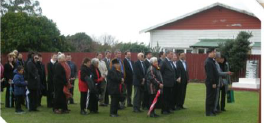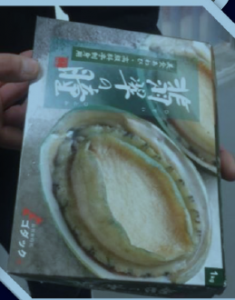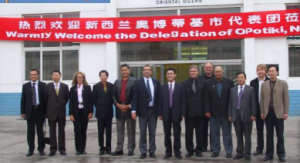




Ōpōtiki using their taonga to harbour a dream
Over the past 20 years Te Whakatōhea and partners have co invested in research and farming infrastructure to harvest spat and grow mussels. Both are now being produced at extraordinary rates.
Decades ago, some Whakatōhea kaumatua advocated farming the sea, and rebuilding the marine based economy which the Iwi had been renowned for pre-confiscation. At the time there was scepticism – maybe the vision seemed impossible….
Ōpōtiki now has the largest offshore marine farm in New Zealand and local iwi, Te Whakatōhea is the majority shareholder. Over the past 20 years Te Whakatōhea and partners have co invested in research and farming infrastructure to harvest spat and grow mussels. Both are now being produced at extraordinary rates.
It’s now time to fulfil the plans to develop the Ōpōtiki Harbour so that both the farm can be serviced and the mussels processed locally – generating local jobs and wealth. Regional commitment to investment is lined up, awaiting government commitment so that construction can commence.
Ōpōtiki, an eastern Bay of Plenty sea side town resident to nearly 5 thousand, was once considered one of New Zealand’s most deprived communities. The town has had heavy unemployment, decreases in population, and a large dependence on government benefits. Increasingly both locals and outsiders are perceiving it differently. They’re beginning to believe that benefits plus seasonal work in kiwifruit need no longer be the only option for a significant portion of the population.
Through their joint leadership, Te Whakatōhea and the Ōpōtiki District Council have integrated iwi and community-led development approaches to empower their community’s transformation.
Shared local visions drive action and change
Ōpōtiki had a desire for change, they envisioned a community that could be more sustainable: Iwi saw opportunity for economic growth congruent with their values and aspirations, that would lead to job opportunities for their people; the Council saw potential in a sustainable seafood industry, along with other industries enabled by a viable harbour, which would all support the community’s wider vision for change.
Using existing strengths and assets
UTe Whakatōhea has a strong connection to the sea. Traditionally known as enterprising seafarers and coastal traders, their history is closely linked to the ocean. The community saw their vision as an asset, one of great value in rebuilding a vibrant local economy and wellbeing. Layered over this was Ōpōtiki harbour. It had been developed in European settlement times for whaling and coastal trading, and was once a busy, thriving harbour – a connection to both European and Māori heritage.
Many people, groups and sectors working together
MTe Whakatōhea, settled on their vision to develop the marine farm, reached out to multiple groups and organisations to assist. Ōpōtiki District Council, with community support got behind the initiative, taking leadership to develop the Harbour. Getting the marine farm underway and confirming the viability of the harbour development has been complex. Processes with community, iwi, multiple central and local government layers, scientist, researchers, investors and a wide range of businesses. There’s been effort regionally, nationally and internationally over many years and that’s created more relationships and trading opportunities both here and overseas.
The Ōpōtiki Marine Advisory Group, established nearly a decade ago, has been a constant thread at the local level, bringing Council, Te Whakatōhea, marine farm leadership and other business people, to the table, along with funders, the regional council and economic development agency.
Working adaptively, learning informs planning and action
WOver the decades of persistence, patches of progress have been frequently interrupted by knock- backs and road- blocks. Two things stand out. One is a collective determination to keep going, learning from experience and adapting to new circumstances and ideas. The other is the value of diverse skills, knowledge and leadership skills around the tables driving these projects, which means different people and organisations can step up when leadership is needed, and then step back as new challenges and opportunities emerge, demanding other expertise.
Watch Ōpōtiki Mussell Farm on Seven Sharp.



